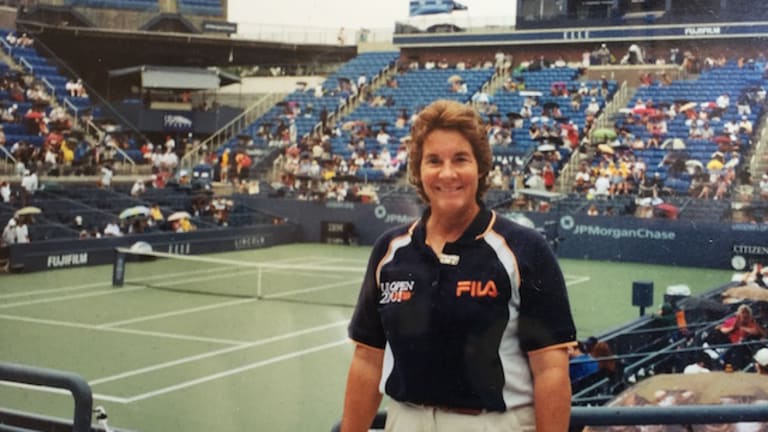It’s been more than 35 years since Ronald Reagan stated, during his first inaugural address, “Those who say that we’re in a time when there are no heroes, they just don’t know where to look.” We discovered heroes in every state, starting with the determined 69-year-old who won a match at an ITF Pro Circuit event earlier this year in the Alabama town of Pelham, and culminating with the coach who has overcome multiple sclerosis to build a winning program at the University of Wyoming. Their compelling stories of courage, perseverance and achievement demonstrate that the message delivered by our 40th President rings as true today as it did then.
Lynn Welch remembers one of the first times she sat in an umpire’s chair. Fresh out of the International Tennis Federation’s beginner “white badge” school, she had never used a microphone, managed ballkids or dealt with a petulant player. She did all three of those things that day at a WTA event in Vermont.
“Stubbsy knew I was a rookie,” Welch says of former doubles No. 1 Rennae Stubbs. “I started wondering how many ‘f-bombs’ I should let her get away with. I finally coded her, and she started marching toward the net, hands on her hips. When it was over, I was so glad to have that one out of the way.”
What may seem like a thankless job to some presented the Maine native with an irresistible challenge. Welch had a successful, decade-long career as a teaching pro on her resume when a colleague convinced her to train with the local umpire association on her off days. Less than a year later, she quit her day job to pursue full-time officiating.
Welch traveled the world for her new profession, often working up to six consecutive tournaments. In the process, she learned how to keep score in Slovak, Greek and Polish—Polish was the most difficult to learn, she says—while building a sterling reputation and even a fan base of her own. Welch’s cool, calm voice and understated authority became her trademark.
“Over the years, people started yelling my name out in a good way at different tournaments in the U.S.,” she says bashfully. “Or they would come up to me and say, ‘We love you! You’re the only one we can understand.’”

